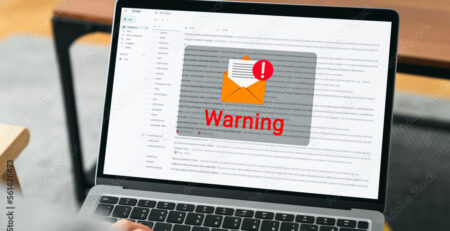Potential Scams to Beware of During the End of the Financial Year
In recent years, a growing number of Australians have started to handle their tax affairs online. This approach certainly has its benefits; for example, the ability to submit documents electronically saves a considerable amount of time, there’s a well-documented digital record of all transactions, and it typically speeds up both tax returns and the resolution of any outstanding tax liabilities.
However, it’s important to remember that the convenience of online services also attracts unscrupulous individuals hoping to gain access to your finances and personal data. Scammers are always on the lookout for opportunities, especially when it comes to tax matters. According to the Australian Taxation Office (ATO), it received 1,815 reports of tax-related scams in February 2022 alone. These figures likely only represent a fraction of actual scam attempts, as many go unreported unless individuals fall victim to them.
As Australians gear up for tax return preparations, scammers increase their activity, often employing strategies designed to induce panic about perceived debt or evasion. When in a state of stress or fear, people are less likely to question the legitimacy of someone claiming to have authority.
Here are a few tips to help you protect yourself from scammers during the tax season:
1. Avoid Clicking on Links in Emails or SMS:
Scammers often try to trick you into logging into a fake website that resembles the myGov login portal. They do this to steal your login details and password. Remember, the ATO never includes login links in any email or SMS. If you receive such a link, do not click on it. Instead, go directly to the myGov portal in your web browser and log in there.
2. Do Not React to Pre-recorded Messages or Threats of Arrest:
This tactic is a common scamming method. A pre-recorded message can’t be argued with, and the idea of being arrested for an unknown tax debt can cause panic. Don’t fall for it.
3. Never Provide Personal Information via Email for a ‘Refund’:
Scammers might claim that you’re entitled to a refund and ask you to ‘update your financial information’ via a link in the email. Remember, this is not how the ATO operates. If you’re due a refund, it will be evident within your online myGov account. If you’re unsure, look up the ATO’s official contact details and verify with them directly.
4. The ATO Isn’t Interested in Apple Gift Cards:
A widespread scam involves the request for payment of a supposed ATO ‘debt’ through gift cards or cryptocurrency. The ATO, being a government entity, does not accept these forms of payment. If someone claiming to be from the ATO demands payment in such ways, it’s a surefire sign of a scam.
If you suspect that you’ve fallen victim to a tax scam, report it immediately to the ATO by calling 1800 008 540, or by emailing [email protected].
Concerned about your online privacy and digital security? A Digital Security Check could be just what you need. This service aims to safeguard your household against scammers and viruses, providing tailored and affordable digital privacy solutions for your specific needs. Book online today.










